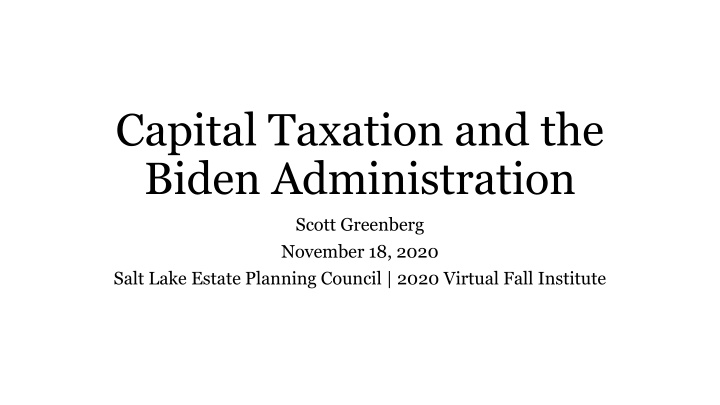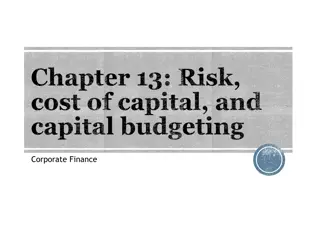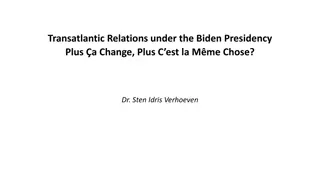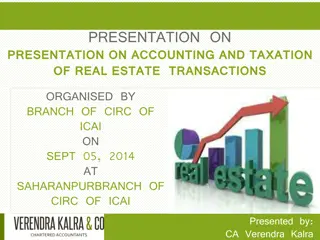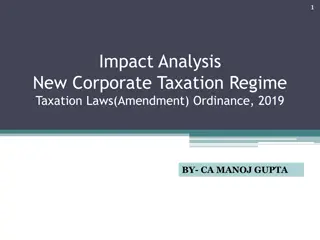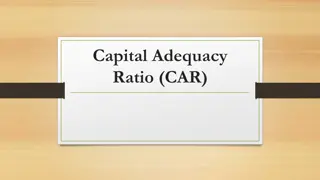Capital Taxation and the Biden Administration for Salt Lake Estate Planning Council Virtual Fall Institute
This informative piece delves into the implications of capital taxation under the Biden Administration, presented at the Salt Lake Estate Planning Council's 2020 Virtual Fall Institute. It discusses key financial considerations, potential changes in tax policies, and strategies for estate planning in light of current and anticipated national tax reforms.
Uploaded on Mar 09, 2025 | 1 Views
Download Presentation

Please find below an Image/Link to download the presentation.
The content on the website is provided AS IS for your information and personal use only. It may not be sold, licensed, or shared on other websites without obtaining consent from the author.If you encounter any issues during the download, it is possible that the publisher has removed the file from their server.
You are allowed to download the files provided on this website for personal or commercial use, subject to the condition that they are used lawfully. All files are the property of their respective owners.
The content on the website is provided AS IS for your information and personal use only. It may not be sold, licensed, or shared on other websites without obtaining consent from the author.
E N D
Presentation Transcript
Capital Taxation and the Biden Administration Scott Greenberg November 18, 2020 Salt Lake Estate Planning Council | 2020 Virtual Fall Institute
An Uncertain Political Terrain Scenario #1: Democratic control of House and Senate Scenario #2: Republican control of one house of Congress
Outline A. Capital gains B. Estate tax C. Closely-held businesses
A. Capital Gains 1. Step-up in basis at death 2. Long-term capital gains rate 3. Mark-to-market taxation of gains
1. Step-up in basis at death Current law: Generally, the basis of property acquired from a decedent is fair market value at the time of death. Biden wants: Taxation of unrealized capital gains at death. Additional details are unclear.
2. Long-term capital gains rate Current law: Top rate of 20% on long-term capital gains, plus 3.8% net investment income tax. Biden wants: Long-term capital gains taxed as ordinary income for taxpayers with over $1 million in AGI.
3. Mark-to-market taxation of gains Current law: Generally, gains are not taxed until realization. Biden wants: Status quo.
B. Estate Tax 4. Estate tax exclusion 5. Estate tax rate 6. 2704 regulations
4. Estate tax exclusion Current law: Estate tax exclusion is $11.58 million per person ($23.16 million per couple). Beginning in 2026, the estate tax exclusion is scheduled to be reduced by half. Biden wants: Estate tax exclusion of $3.5 million / $7 million (as in 2009).
5. Estate tax rate Current law: Estate tax rate is 40%. Biden wants: Estate tax rate of 45% (as in 2009).
6. 2704 regulations Current law: On October 20, 2017, the Trump administration withdrew proposed regulations that were aimed at preventing the undervaluation of certain transferred interests in businesses. Biden wants: Unclear. Some reports have speculated that the Biden administration would be interested in reviving these proposed regulations.
C. Closely-Held Businesses 7. 199A deduction 8. Corporate tax rate 9. Business deductions
7. 199A deduction Current law: 20% deduction for qualified business income; restricted for households with taxable income over $164,900 (single) and $329,800 (joint). Biden wants: Deduction for qualified business income eliminated for households making over $400,000.
8. Corporate tax rate Current law: Corporate tax rate is 21%. Biden wants: Corporate tax rate of 28%.
9. Business deductions Current law: 100% expensing for many capital investments, which is set to phase out after the end of 2022. Restrictions on business interest deductibility set to tighten after the end of 2021. Biden wants: Unclear. Biden has called for restrictions on the deductibility of certain capital expenses for fossil fuel companies, real estate companies, and pharmaceutical companies.
